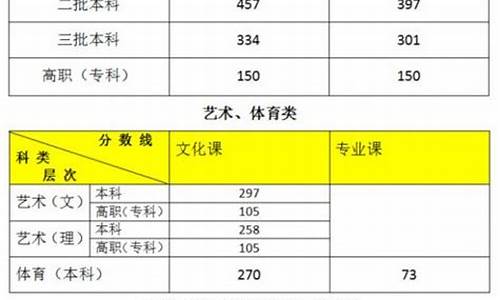您现在的位置是: 首页 > 教育改革 教育改革
高考易考英语词汇_高考易混英语
tamoadmin 2024-07-31 人已围观
简介1.高考英语语法:高中英语语法-一语击破易混词(6)2.8个句子:记住英语中易混淆的8组单词3.易混淆的英语题,是过去完成时还是过去式?every、each:every作定语,each作定语或者名词性成分good形容词,well副词,形容词为“健康”except除……之外,besides除……还有heto不得不must主观的必须高考英语语法:高中英语语法-一语击破易混词(6)Obsolete W
1.高考英语语法:高中英语语法-一语击破易混词(6)
2.8个句子:记住英语中易混淆的8组单词
3.易混淆的英语题,是过去完成时还是过去式?

every、each:every作定语,each作定语或者名词性成分
good
形容词,well
副词,形容词为“健康”
except除……之外,besides除……还有
he
to
不得不
must
主观的必须
高考英语语法:高中英语语法-一语击破易混词(6)
Obsolete
What you think it means: Old, out of date。你以为单词的含义是:旧的,过时的。
What it really means: Not produced, used, or needed。单词的真正含义是:未生产的,未使用的,不需要的。
You’ll see this one in the tech industry a lot. People in tech article comments will comment that a phone is obsolete when they really mean that it’s out of date. The literal definition of obsolete is an item that it isn’t produced, needed, or used anymore. An example of this is is the steam engine. It’s largely inefficient compared to today’s combustion engine and even more inefficient than the emerging electric engines. Thus, steam engines are not used, produced, or needed anymore. Yes, they are also old and out of date, but obsolete is kind of the next step after old and out of date。
这个单词在科技行业经常出现。在科技文章评论中,人们会说某个电话机obsolete(未使用的),其实他们是想说电话机过时了。Obsolete的字面定义是指某物未被生产、不被需要或不再使用。一个例子就是蒸汽机。跟如今的内燃机相比,蒸汽机相当不给力,甚至都比不上新兴的电发动机;因此,蒸汽机是不被使用的、不被生产的或不再被需要的。没错,蒸汽机也是旧的、过时的,但obsolete是“旧”与“过时”更后一步的阶段了。
(来源:新东方在
8个句子:记住英语中易混淆的8组单词
《高中英语语法-一语击破易混词(6)》由英语我整理,更多请访问:s://.liuxue86/english/。本内容整理时间为05月12日,如有任何问题请联系我们。
一语击破易混词(6)
die/dead/dying/death
?死?法不同
[高手出招]
( 1 ) The old woman __________ten years ago.
( 2 ) She was working on the day of her_______________.
( 3 ) I think the sick man is____________.
( 4 ) He has been ____________for three years.
[一语击破]
die 是表示短暂性动作的动词,意为?死亡?、?断气?,指生命的结束,强调动作。如:
The girl's grandpa died five years ago.
注意: die 不可和一段时间的状语连用。
(误) He has died for two years.
(正) he has been dead for two years.
dead 是形容词,意为?死的?,通常和 be 动词连用,表示死的状态。如:
Her father has been dead for one year.
dying 是 die 的现在分词,常用作形容词,意思是?要死的?、?濒临死亡的?。如:
The old man is dying.
death 是 die 的名词形式,意为?死、死亡?。如:
It makes me very sad when I think of my grandpa's death.
Keys: ( 1 ) died ( 2 ) death ( 3 ) dying ( 4 ) dead
As/when/while
?当?时?不同
[高手出招]
( 1 ) I was doing my homework ____________suddenly a stranger came in.
( 2 ) The students sang ___________they went out of the classroom.
( 3 ) ___________I was doing my lessons last night, she was watching TV.
[一语击破]
as 意思是?当?时候?,往往强调主句和从句中的动作或同时发生,有时译成?一边?一边。如:
We talked as we walked.
when 是普通用语,在表示?当?时候?时,从句的谓语动词既可用延续性动词,也可用短暂性动词,有时可以替代 as 或 while .如:
When we got to the cinema, the film had already begun.
while 引导的从句的动作常表示一段较长的时间或一个过程,常用进行时态,强调主句和从句的动作同时发生。如:
Someone was knocking at the door while we were hing supper.
注意: while 从句中的动词一般是延续性动作的动词。
(误) While he came back, we started to work.
(正) When he came back, we started to work?
Keys: ( 1 ) when ( 2 ) as ( 3 ) While
sometime/some time/some times/sometimes
?有时?不同
[高手出招]
( 1 ) Will you come again____________ next week?
( 2 ) I'll stay here for_____________.
( 3 ) My house is _______________bigger than hers.
( 4 ) I ______________he letters from him.
[一语击破]
sometime 是副词,意为?在某人不确定的时间?,?在某个时候?,?有朝一日?,可以与将来时连用,也可以和过去时连用。如:
She was there sometime last year.
some time 是名词词组,意为?一段时间?,做时间状语用,谓语动词用延续性动词。如:
They'll stay here for some time.
some times 意为?几次,几倍?,表示次数或倍数。如:
We he been there some times.
sometimes 意为?有时?,表示频度,可以指过去、现在或将来的时间概念。如:
I go to the cinema sometimes.
Keys: ( 1 ) sometime ( 2 ) some time ( 3 ) some times ( 4 ) sometimes 《高中英语语法-一语击破易混词(6)》由英语我整理,更多请访问:s://.liuxue86/english/
易混淆的英语题,是过去完成时还是过去式?
小编导读:英语是一门非常容易引起混淆的语言,明明两个单词之间只有一两个字母的差别,它们的意思却差之千里。下面我们来看看8组非常容易让人混淆的单词吧。
1.farther 和 further
例句Are we going much further or farther?
我们是要更进一步还是要走得更远一些?
语言学界对farther和further之间的区别一直争论不休。有人说它们是用来分别形容比喻性和字面上的距离,事实上,further既可以形容比喻性的距离,也可以形容字面上的距离,但是farther就只能形容字面上的距离了。
2.?flaunt?和?flout
例句Do you flaunt your wealth or flout your wealth?
你是要炫耀你的财富还是要藐视你的财富?
Flaunt意为“招摇卖弄”而flout则表示“公然无视规则”,所以你可以flaunt your wealth(卖弄你的财富),而不可以flout the laws(藐视法规)。
3. historic 和historical
例句The opening was a historic/historical event.
那次对外开放是一次具有历史意义的/历史上发生过的。
你也许觉得这两个词意思差不多,都表示“历史的”,其实不然,historic和historical差别还是挺大的,前者意为“历史上著名的、有意义的”,后者意为“在历史上发生过的”。如果一件事情可以用historic来形容,那么也能用historical来修饰,反之则不一定了。
4.?pour?和?pore
例句Did sweat pour out of his pores?
汗水是从他的毛孔里流出来吗?
Pour意为“像一条小溪那样快速不断地流出”或者“倾泻而出”,而pore则是“你的皮肤上的微小开口”,pore作为动词则表示“凝视、细想”,常与介词over或through连用,比如He pored over the dictionary(他聚精会神地看着那本字典)。
5. adverse 和?erse
例句Was he erse or adverse to the idea of getting ice cream?
他是反对(还是不利于)买冰淇淋这个主意?
Averse意为“强烈厌恶或反对某事”,adverse则表示“阻碍某事成功或发展、对其不利或有害”,前者用来形容一个人的态度,而后者可以用来形容某种情况、条件或。所以例句中应该用的是erse。
6.?flair?和?flare
例句She dressed with flair/flare, wearing a blouse with a stylish flair/flare at the ends of her sleeves.
她穿着一件袖子末端缀着时尚的天资/荷叶边的衬衫,打扮得很时髦/闪闪发光。
Flare可以用来表示“突然发生的火光或亮光、突发的情感”,也可以形容“裙子或裤子逐渐变得宽大”;flair则表示“过人的天资、天生的才能”,或意为“时尚、创意”。所以你可以打扮得with flair(很时髦),你的裙子可以有a stylish flare(时尚的荷叶边)。
7. discreet 和 discrete
例句Did you mean a discrete voice or a discreet voice?
你是指独立的声音还是谨慎的声音?
Discrete意为“离散的、独立的、不连续的”,discreet可以形容某人“言行谨慎”,也可以形容某物“不引人注目”。有一个分辨它们的小技巧,在discrete里,两个e被t给分开了,所以表示“离散的、独立的”。
8.?tortuous?和?torturous
例句Are you talking about the tortuous or torturous scenes?
你是在说曲折的还是折磨人的情节?
如果一部**情节一波三折,那你可以用tortuous来形容它;如果一部**充满了折磨与拷问的情节,毫无疑问,它可以用torturous来形容。
其实过去式和过去完成时是很好区分的。过去完成时是以过去的时间为参照点,发生在过去的过去,即文段中有明显的过去式,且动作发生在过去完成时的动作之后的。过去式仅仅只是发生在过去的时间。再说这两道题目里面也没有过去完成时的选项啊!过去完成时的结构为:had done.还有啊,你第二题的答案不对。yes后面跟的是肯定,no后面要跟否定的。不过,如果疑问句是否定的问法,例如Didn't you go there?这样的,去了就回答yes,但是要翻译成:不,我去了。没去就回答no,但是要翻译成:是的,我没去。
下一篇:高考体育训练_高考体育训练









